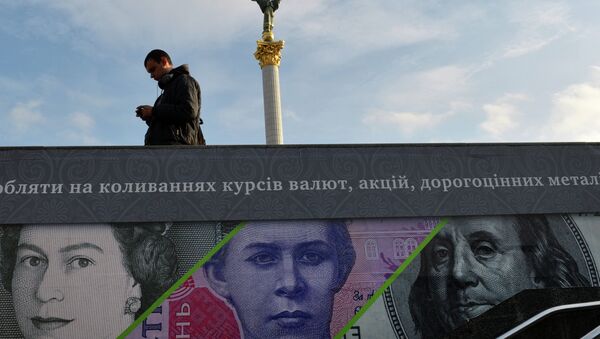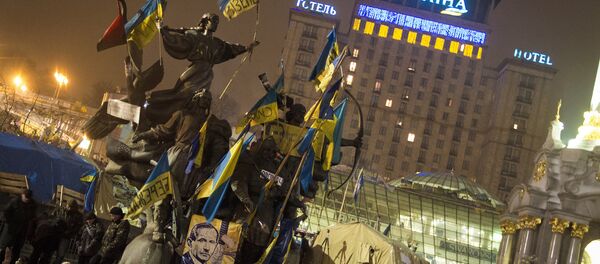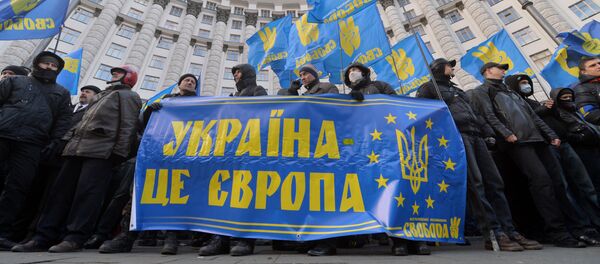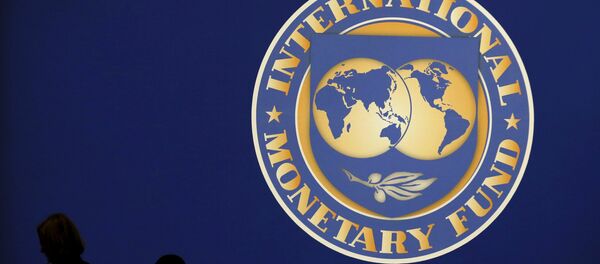The IMF officials, led by Ukraine mission chief Ron van Rooden, are expected not only to assess Ukrainian authorities' efforts to implement the fund's recommendations, but to continue what is already the second review of the Extended Fund Facility, a program meant to assist countries which have balance of payments problems and need an extension on their adjustment period.
Now, authorities hope that the new government, led by Petro Poroshenko ally Volodymyr Groysman, will help Ukraine unlock the next tranche of IMF loan money. In accordance with IMF energy reform requirements, Groysman has already announced a 60% increase in the price of gas for households. The new prime minister also promised to fight corruption and to reform the country's system of administration.
Last week, in an article for The Washington Post, political science professors Neil A. Abrams and Steven Fish warned that the billions in Western assistance funneled into Ukraine over the past 25 years have not helped the country; on the contrary, they noted, "for every dollar of aid that flows into the country, $6.25 illicitly flows out." The scholars concluded that ultimately, the West may be better off refraining from additional assistance "until the coming to power of a truly new leadership."
Speaking to Ukrainian politics and economics experts, independent Russian newspaper Svobodnaya Pressa came to conclusions that were somewhat different.
The current reality, Dudchak explained, "is that Ukraine no longer has any other sources of funds for its budget. In theory, an economy is supposed to exist on domestic business, manufacturing, trade. But since everything was done, with the IMF's help by the way, to collapse the Ukrainian economy, the fund's managers have effectively become the sole entity holding the entire country on a leash."
Asked why the Western media has left its earlier tack and turned to a more candid criticism of the corruption of Ukrainian authorities, the analyst suggested that "it's all just a policy to put pressure on the government, and to force it to adjust its course."
"However, it demonstrates the West's attitude toward Ukraine's authorities. They are letting these people know that in and of themselves, they mean nothing to them. They were just an instrument to put pressure on Russia and to create a tension point in the region. Now they have done their job, and they can be replaced with someone else."
Ultimately, Dudchak suggested, IMF lending as an institution should be viewed separately from traditional lenders, who make repayment their number one priority. "When the IMF offers its loans, they have very different objectives; they aren't concerned with interest repayment, but with the ability to influence a country's foreign and internal policy. We saw how the fund factually instructed the Ukrainian parliament how to vote and which laws to pass. This is a political organization, one which solves crucial global geopolitical and economic problems. And loans are merely the smokescreen used for doing so."
It's worth recalling, the analyst noted, that "the IMF's lending program to Ukraine was temporarily frozen because the country's leaders could not solve a number of issues related to the fund's recommendations. Specifically, they could not make the necessary legislative changes which would increase tariffs for gas, electricity, utilities, and make revisions to minimum pensions and wages."
"The IMF called this a need to 'balance the budget', but its factual result was to lower the majority of the country's citizens' from being 'poor' to being below the level required for subsistence. At first, it was the Yatsenyuk government that was engaged in this. Now, the baton has been handed over to Volodymyr Groysman."
At the moment, Denisov noted, there are an estimated 40 laws which must be passed to resume lending. "And if we recall the history of the fund's operation in the past 40 years in other countries, it can be concluded that the financial institution is not interested in the prosperity of other countries, but in making money on these loans, and using them to influence the host state's policy and to determine its development vector."
"Most likely," the analyst lamented, "the credit line for Ukraine will be extended, and the IMF will continue to drive the country into bondage with their so-called financial assistance."





